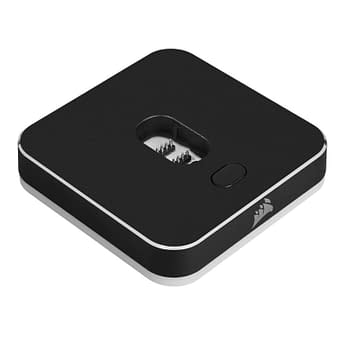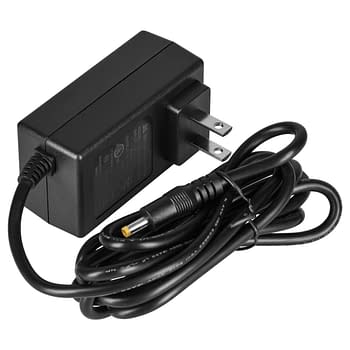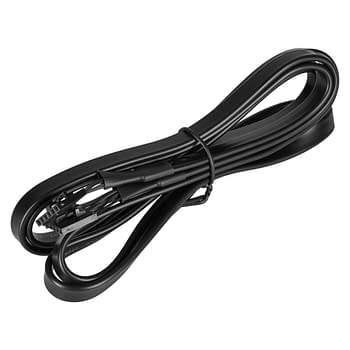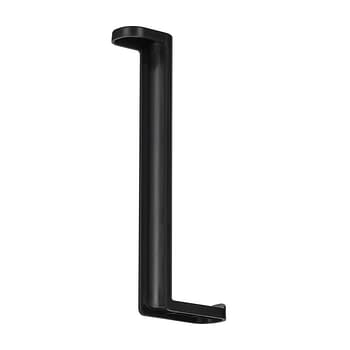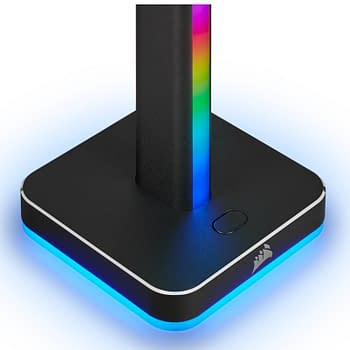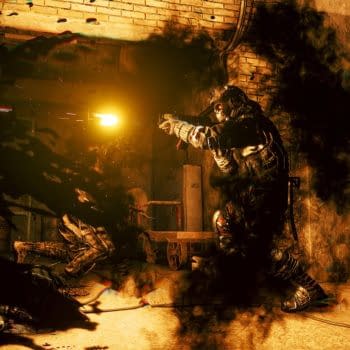Posted in: CORSAIR, Game Hardware, Games, Review, Video Games | Tagged: corsair, Review
We Review The CORSAIR iCUE LT100 Smart Lighting Towers
A while back, the folks at CORSAIR were kind enough to send us a set of their iCUE LT100 Smart Lighting Towers to experiment with. At the time we got these we were trying to figure out just how you utilize these when it came to mixing and matching RGB lighting for a gaming desk. As you're reading this, there are products in front of me from Logitech G, Razer, Cooler Master, Nanoleaf, Elgato, and CORSAIR, all of which utilize various lighting schemes that do not interact with each other. So when you're building up your desk and office for streaming, gaming, and other lighting purposes, you end up having to get picky. We tested out the towers in about a dozen scenarios and here's what we discovered.
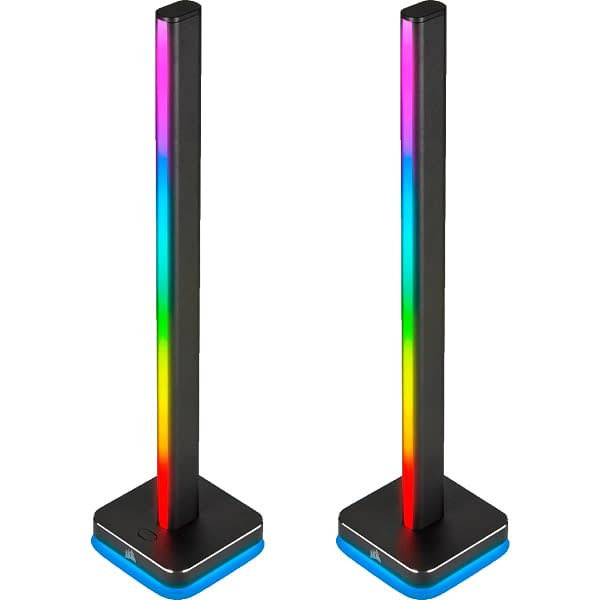
So first off, the system itself is pretty simplistic. We were sent a core pair of lights and an extra so we had three to work with for experimenting with the setup. Below you can see everything that's included in the core set as you have the primary tower port that serves as the home base for the power, the on/off switch, and the primary connector cord that goes to the other lights. The primary connection to your PC to work with is a Micro USB to USB-A setup, while the lights are connected through connector strips. Unlike other systems that use the USB to power it, you have a traditional plug for the power. The core setup also comes with an attachable headset rest that you put on the back end of whatever light you select so you have it within reach and ready to go.
- Credit: CORSAIR
- Credit: CORSAIR
- Credit: CORSAIR
- Credit: CORSAIR
- Credit: CORSAIR
Putting it together is pretty easy as you simply plug the light's power source in and hook the USB up to your tower or laptop. Everything you need to operate the lights is already built into the main hub as it comes with 11 preset light sequences that you can rotate through just by hitting the button on the hub base. You get pulsating lights, the standard rainbow, and some color rotation sets, with everything lighting up the base as well to match what's happening on the tower to some degree. However, if you want full control over what you're working with, you need to download the iCUE software so that it integrates with the lights.
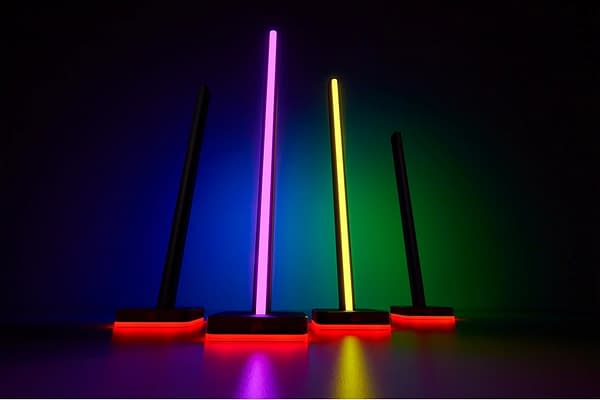
In the iCUE, CORSAIR has allowed you to program the setup however you see fit. If you're looking to make the room dark and broody, you can switch everything to a low purple. Want things to be a little more festive and bright, you can set it to cycle through a set of colors that you choose to make the room look and feel a certain mood. But if you're going to customize the lighting, the best thing you can do with them is to point them at the walls for the greatest effect of illuminating the room. They're super bright and just pointing them at yourself is useless, unless you set two aside to set up left and right lighting on your face using some of the daylight and warm light options.
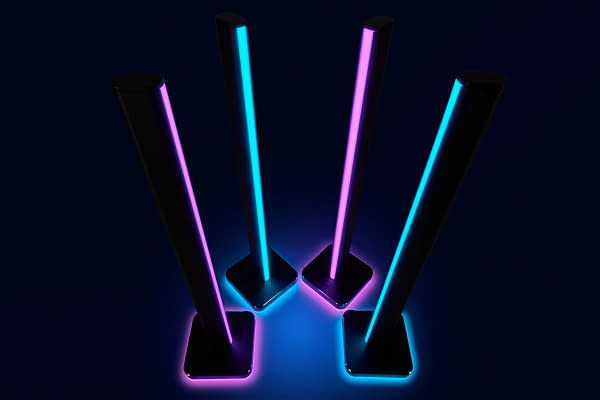
As far as color coordination goes with other companies' products, that's where the real challenge comes in. In a perfect world, one company would have everything you want. But more often than not, what works well in one area doesn't work well in the others. We tested working with these lights in various scenarios such as programming it to games with other systems that work with game coloring integration, as well as music, video mood-setting, and just trying to coordinate everything on the same color. The best way to utilize these towers is with room illumination, as they are absolutely bright and cover a ton of space just from the length alone. They kit up my office space well with little complaint.
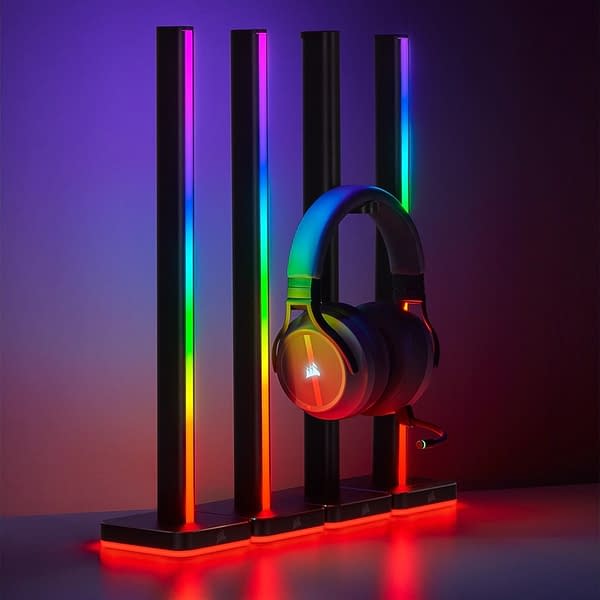
Ultimately, the CORSAIR iCUE LT100 Smart Lighting Towers are an amazing setup that works well in certain scenarios. However, I wouldn't call them the end-all-be-all for lighting as there are just some things that didn't come off that great. They light up a room in fantastic fashion and work well for self-lighting on camera. They serve as a great alternative if you're tired of staring at a ring light all day. The only major downside to them is the pricing as is costs $150 for the Starter Kit with just two lights and an additional $70 for each expansion light you wish to purchase. If you're tight on cash and want these, you can make due with just two.


